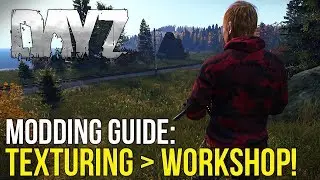Master English Grammar With Vocabulary By Reading Newspaper Articles For A/L Students in Sri Lanka
How to Build Vocabulary & Improve Grammar with Local English Newspapers | G.C.E. A/L English Tips For Sri Lankan School Students
Welcome to our latest lesson designed specifically for Sri Lankan G.C.E. Advanced Level students and teachers! In this video, we dive into a simple yet powerful method to boost your English skills: reading local English newspapers. Whether you're preparing for your A/L exams or teaching students to excel in English, this step-by-step guide will show you how to build vocabulary and improve grammar knowledge effectively. Let’s unlock the potential of newspapers like Daily News*, *Sunday Observer*, and *The Island to make English learning engaging, practical, and exam-ready!
Why newspapers? For A/L students, mastering English is key to excelling in General English and other subjects, while teachers need innovative ways to inspire their classes. Local English newspapers are affordable, accessible, and packed with real-world language that reflects both global and Sri Lankan contexts. This video breaks down actionable strategies to turn your daily reading into a goldmine for vocabulary and grammar improvement.
*Step 1: Start with What Interests You*
We begin by encouraging students to pick articles that spark curiosity—sports, local events, or even entertainment. When you’re interested, you’re more likely to pay attention to new words and sentence patterns. Teachers can guide students to select short articles (200-300 words) and discuss them in class to make learning interactive. In this video, we’ll show you how to spot unfamiliar words like “resilience” or “infrastructure” in context and guess their meanings before checking a dictionary.
*Step 2: Build Vocabulary Actively*
Next, we explore vocabulary-building techniques. Students, grab a notebook! As you read, jot down 5-10 new words per article, their meanings, and a sample sentence. For example, reading about a cricket match might introduce “decisive” or “stamina.” Teachers, we’ll share a fun activity: create a weekly “Word Wall” in your classroom with newspaper clippings and student definitions. This video demonstrates how repetition—seeing words in different articles—helps cement them in your memory for essays and comprehension tasks in the A/L exam.
*Step 3: Master Grammar Through Observation*
Grammar doesn’t have to be boring! Local newspapers are full of well-structured sentences. In this lesson, we’ll teach you to identify tenses, prepositions, and sentence types (simple, compound, complex) as you read. For instance, an article might say, “The government has launched a new project,” showing present perfect tense. We’ll walk you through underlining these patterns and practicing them in your own writing. Teachers can assign “Grammar Hunts” where students find examples of reported speech or conditionals in editorials—perfect for A/L essay prep!
*Step 4: Practice and Reflect*
Reading alone isn’t enough—practice makes perfect. We’ll guide students to summarize articles in their own words, using new vocabulary and grammar rules. Teachers, try setting mini-assignments: rewrite a news headline or debate an opinion piece in class. This video includes examples, like turning “Floods hit Colombo” into “Colombo has been affected by severe flooding.” This builds both fluency and confidence.
*Bonus Tips for Success*
We wrap up with practical advice: read 15-20 minutes daily, discuss articles with friends or colleagues, and track progress over weeks. For A/L students aiming for top grades and teachers fostering critical thinkers, this method is a game-changer. Local newspapers connect English to real life, making it less intimidating and more rewarding.
#GCEALEnglish
#LearnEnglishSL
#VocabularyBuilding
#GrammarTips
#SriLankaEducation
G.C.E. Advanced Level
English vocabulary
Grammar improvement
Local newspapers
Sri Lankan students
Subscribe now and hit the bell icon for more G.C.E. A/L English tips! Share this video with your classmates or fellow teachers, and let’s make English mastery achievable together. Drop a comment below: which local newspaper will you start with? Let’s get reading and learning!


![[FREE] Kyle Richh X Jenn Carter X Jerk Drill Type Beat 2024 - “COCHISE” Sample Drill Type Beat](https://images.mixrolikus.cc/video/0nBtbzz-ZcU)
















